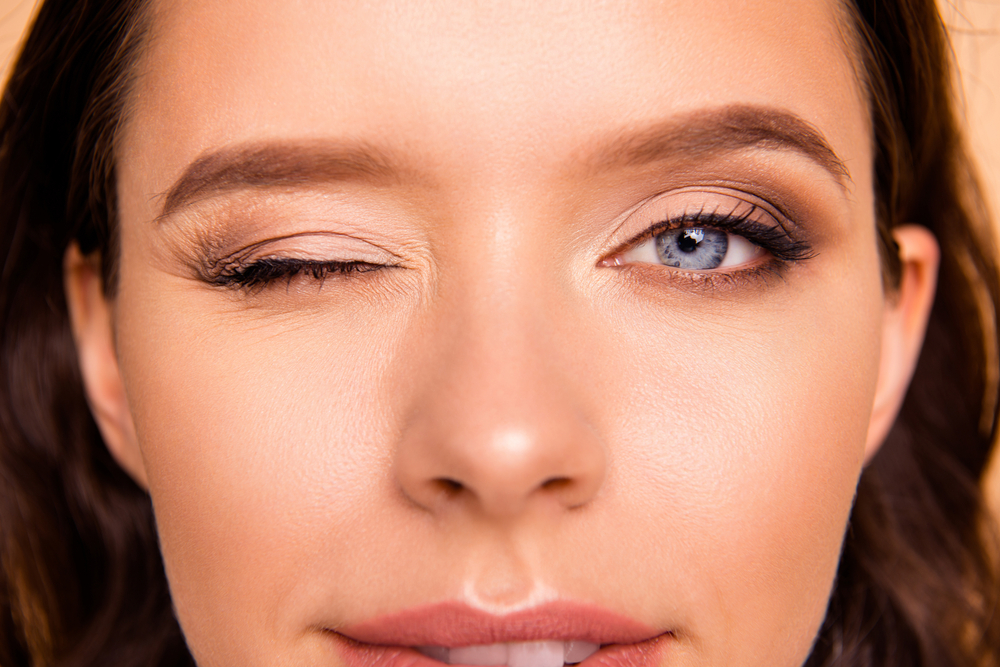What is Eye Twitching? What Causes Eye Twitching?
Eye twitching is a medical condition that occurs as a result of involuntary contraction or shaking of the muscles in the eyelid. The factor causing this condition is not yet fully known; However, factors such as stress, fatigue, caffeine, dry eyes, and eye fatigue can trigger the condition.
Eye twitching can be divided into two groups: eyelid myokymia and benign essential blepharospasm. Eyelid myokymia is an occasional mild twitching. This condition can often return to normal without requiring medical treatment. Benign essential blepharospasm is a movement disorder that causes the eyelids to close partially or completely as a result of involuntary contraction of the muscles around the eyes. Individuals with this condition may experience visual impairment. Long-term treatment may be needed to resolve benign essential blepharospasm.

SUBJECT TITLES
What is Eye Twitching?
An uncontrollable movement or spasm of the eyelid or eye muscles is known as eye twitching. This condition can occur in different species. However, there may be different underlying causes for each type of twitching.
The most common type of twitching is called myokymia (1). This type of twitching or spasm can occur in the upper or lower eyelid. However, it can usually affect one eye.
Another type of twitching is known as benign essential blepharospasm. This may cause both eyes to blink and the eyelids to tighten. This type of twitching is rarer than myokymia. However, it may develop severely and negatively affect routine life.
What Causes Eye Twitching?
The exact cause of twitching is not yet known. However, there may be factors that may trigger or worsen this condition. These factors include:
- Sleep Deprivation: Sleep is an action that allows muscles to rest and relax. Twitching may be common in people who experience sleep deficiency.
- Stress: Stress can cause some changes in the nervous system and muscles. As a result of this situation, eye twitching may occur.
- Caffeine: Caffeine is a stimulant substance found in drinks such as coffee, tea and cola. Consuming foods containing caffeine may cause twitching.
- Dry Eye: It may occur due to reasons such as aging, allergies, medications, environmental factors, and contact lens use. This may cause discomfort and twitching in the eyelids.
- Eye Fatigue: Eye fatigue is another factor that can cause twitching. This situation may occur with activities such as looking at screens such as computers, televisions, phones for a long time, reading, driving.
Pay attention to such situations and ask "what is good for eye twitching?" It may answer the question.
What are the Symptoms of Eye Twitching?
Different symptoms may occur as a result of eye twitching. Some of these symptoms are as follows:
- Occasional or continuous twitching or contraction of the eyelid,
- Partial or complete closure of the eyelid,
- Eye discomfort. , pain or burning sensation,
- Sensitivity to light,
- Blurred vision.
How Is Eye Twitching Diagnosed?
To diagnose eye twitching, a physical examination is first performed by a doctor who specializes in this field. In this examination, the frequency, severity and duration of eye twitching are generally evaluated. The doctor may also ask about the patient's medical history, family history, medication use, stress level, sleep patterns, and other lifestyle factors. However, he or she may perform some tests to detect other vision problems or nervous system disorders. These tests may include:
- Eye Pressure Measurement: This test measures the pressure inside the eye. It may indicate a serious disease such as high blood pressure or glaucoma.
- Eye Surface Staining Test: A surface staining test is used to detect damage or infection on the surface of the eye. In this test, the doctor drops dyed liquid onto the surface of the eye and the eye is examined under a special light.
- Eye Muscle Test: This test evaluates the function and coordination of the eye muscles. The doctor observes the reaction of the muscles by asking the patient to move his/her eyes in different directions.
- Ocular Nerve Test: The optic nerve test evaluates nerve health and It is a test that measures transmission. The doctor may test the patient's pupil response to light, visual field, and color perception
When Should You Consult a Doctor for Eye Twitching?
Eye twitching is a disorder that most of the time does not require treatment, but it should be taken seriously and a doctor should be consulted in the following cases:
- The twitching may occur several times. lasting longer than a week,
- Weakness or stiffness in the affected area,
- Complete closure of the eyelid during twitching,
- Difficulty in opening the eye,
- Twitching in other parts of the face or body,
- Emergence of conditions such as redness, swelling or discharge in the eye.
Twitching is usually a condition that cannot be taken seriously, but sometimes the underlying cause may be present. It could be a sign of a serious problem. Therefore, if twitching continues or is accompanied by other symptoms, it is necessary to see a doctor without delay.

What are the Treatment Methods for Eye Twitching?
Treatment of eye twitching may vary depending on the factor causing this condition, the type of twitching and its severity. Some of the treatment methods that can be applied are as follows:
- Lifestyle Changes: Causes of eye twitching may include conditions such as stress, sleep deprivation and caffeine. Reducing or eliminating these factors can help prevent or reduce twitching. Relaxation techniques such as exercise, breathing exercises and meditation can be applied to reduce stress. However, caffeine intake can be limited or stopped completely to ensure the necessary sleep patterns.
- Medications: Some medications can be effective in reducing twitching. A doctor should decide which drugs will be used in this treatment.
- BotulinumToxin Injections: Botulinum toxin is one of the most effective methods used in the treatment of twitching. Botulinum toxin is injected into the muscles under the eyelids and relaxes the muscles there. An injection can effectively help prevent twitching for about three months.
- Surgical Treatment: Surgical procedures are the last resort for eye twitching. This treatment can be applied in severe cases where there is no adequate response toBotulinumtoxin injections or in cases that cause the eyelids to close completely. In surgical treatment, some of the muscles that move the eyelids are removed or cut. This procedure may cause the eyelids to close less frequently. Risks of surgical treatment may include infection, bleeding and vision loss.
The answers to the question "How to get rid of eye twitching" may include the treatment methods listed above.
What Happens If Eye Twitching Is Untreated?
Eye twitching is a condition that does not require treatment most of the time. However, in some cases, if left untreated, undesirable effects may occur. Some of these are as follows:
- Visual Impairment: Twitching may cause the eyelids to close partially or completely. This condition can narrow or blur individuals' field of vision. It may also cause dryness or infection. As a result, symptoms such as eye pain, burning, redness and discharge may occur. These symptoms can negatively affect the quality of vision in people.
- Psychological Problems: Twitching can damage the individual's self-confidence, self-esteem and social relationships. Additionally, it can cause emotional problems such as stress, anxiety and depression in individuals. These problems can reduce the quality of life.
- Functional Limitation: Eye twitching can also prevent daily activities. This condition may restrict functions such as reading, writing, driving, working, or doing sports.
Although eye twitching is usually a minor condition, it can sometimes be a sign of a serious underlying problem. Therefore, if the twitching continues or is accompanied by other symptoms, it is necessary to see a doctor without delay.
Source
- https://www.mayoclinic.org/symptoms/eye- twitching/basics/causes/sym-20050838
- https: //www.hopkinsmedicine.org/health/conditions-and-diseases/eye-twitching
- https://www.brainfacts.org/brain-anatomy-and-function/anatomy/ 2022/eyes-twitches-your-lids-may-just-need-some-shut-eye-051622
- https://www.healthline.com/health/when-to-worry-about-eye-twitching
- https://www.visioncenter.org/conditions/eye-twitching/
- https://www.verywellhealth.com/eyelid-twitching-5225631
- https://www.cedars-sinai.org/health-library/diseases- and-conditions/e/eye-twitching.html
- https://www.hopkinsmedicine.org/health/conditions-and-diseases/eye-twitching
- https://www.webmd.com/eye-health/why-your-eyes-twitch
- https://www.aao.org/eye-health/tips-prevention/how-to-stop- eye-twitching
- https://my.clevelandclinic.org/ health/symptoms/17663-eye-twitching
- https://www.healthdirect. gov.au/twitching-eye
- https:// www.insider.com/guides/health/conditions-symptoms/eye-twitching
Tarih: 08/01/2024